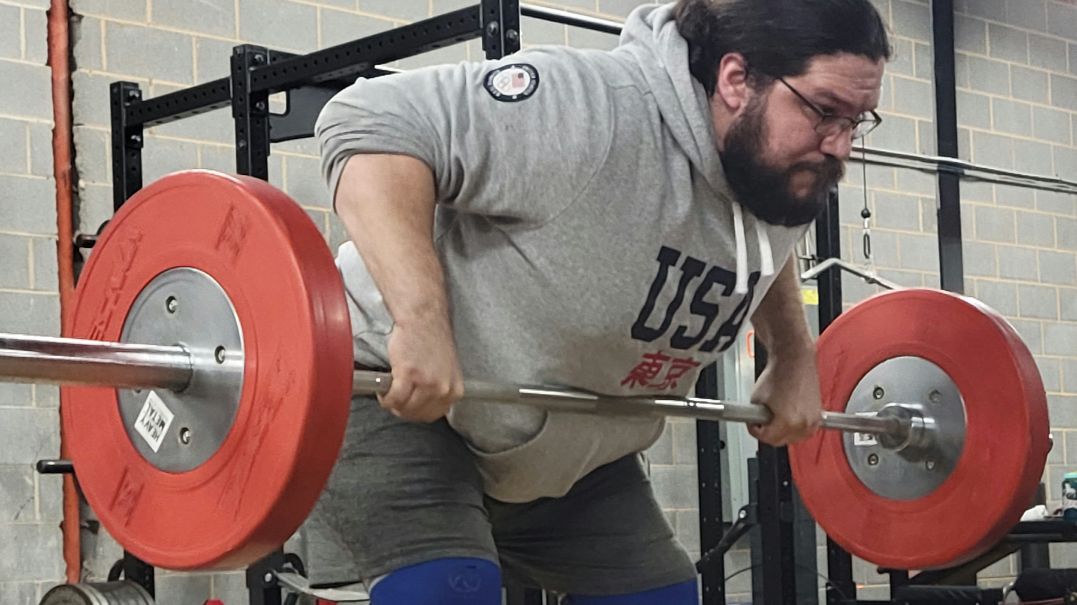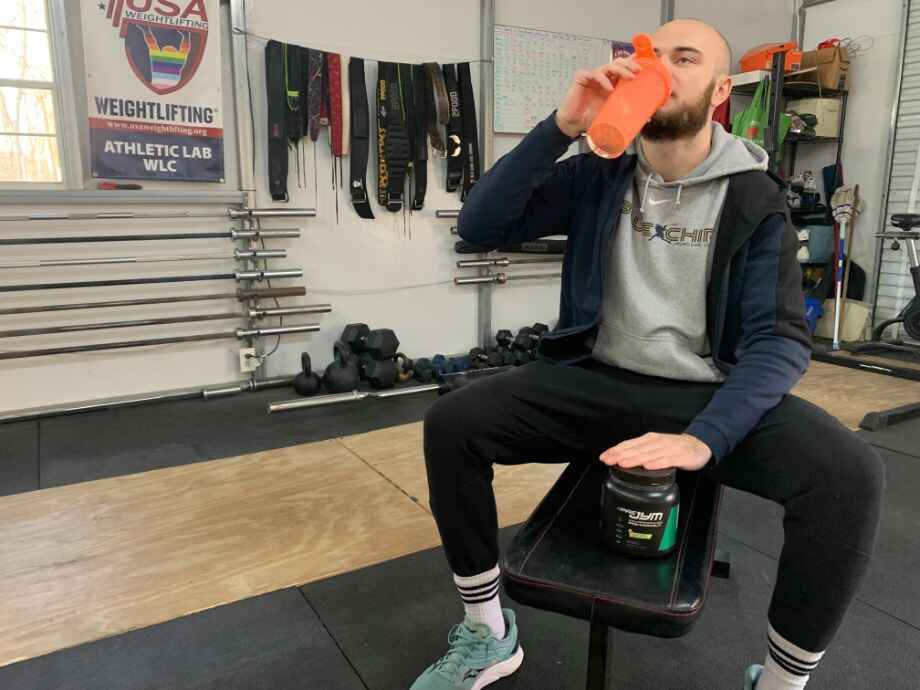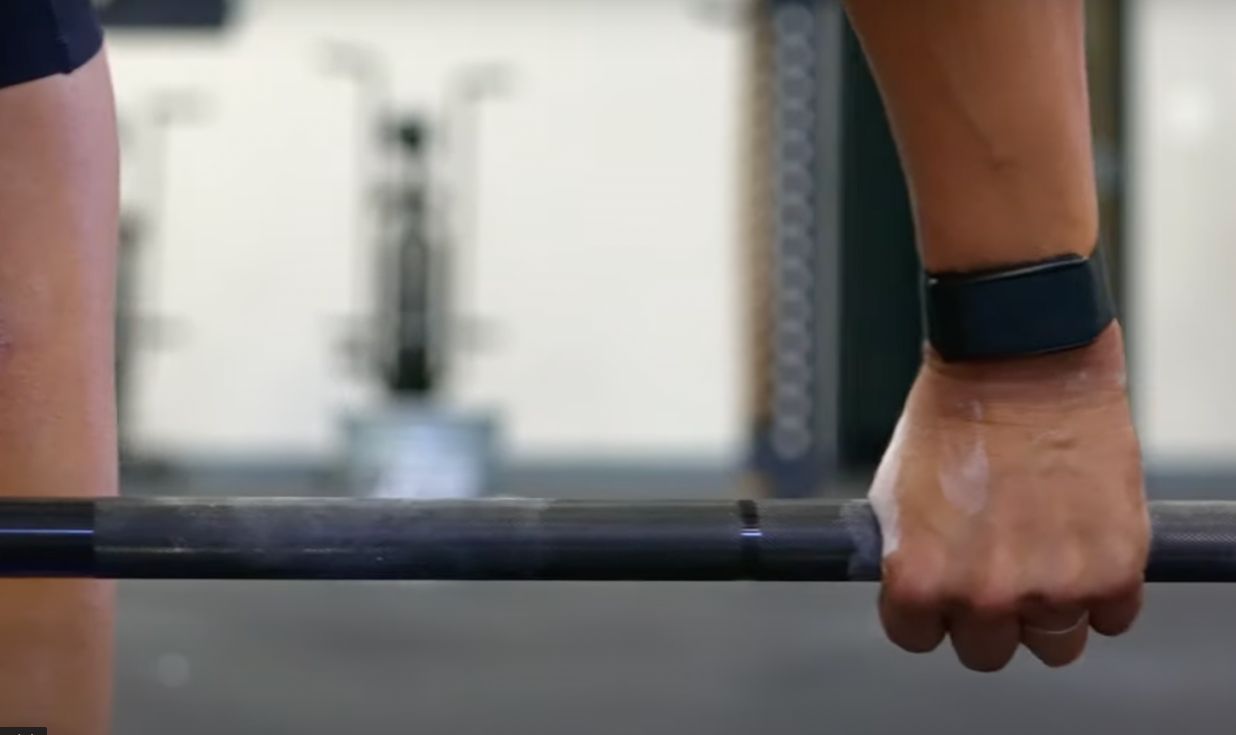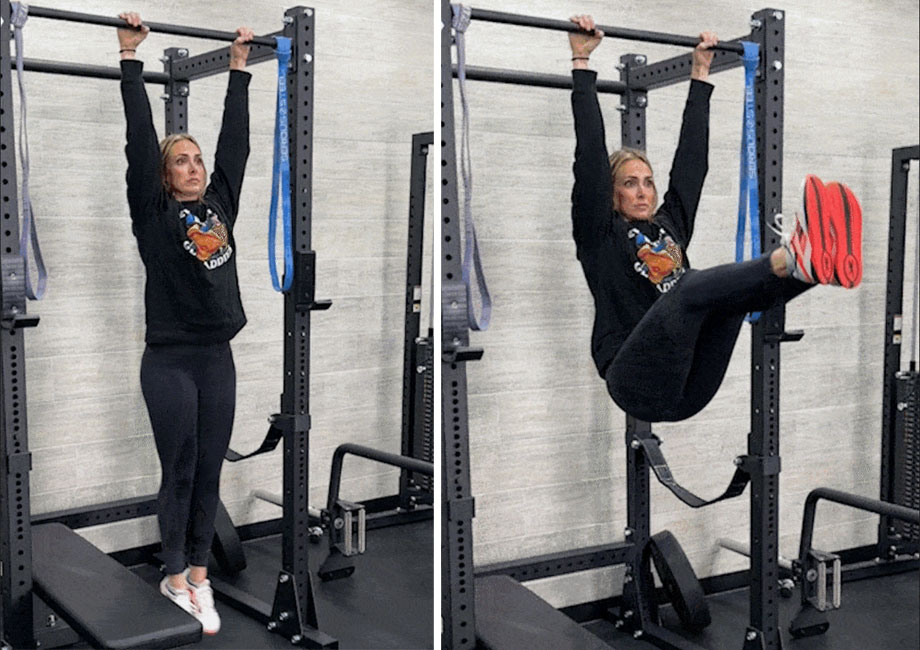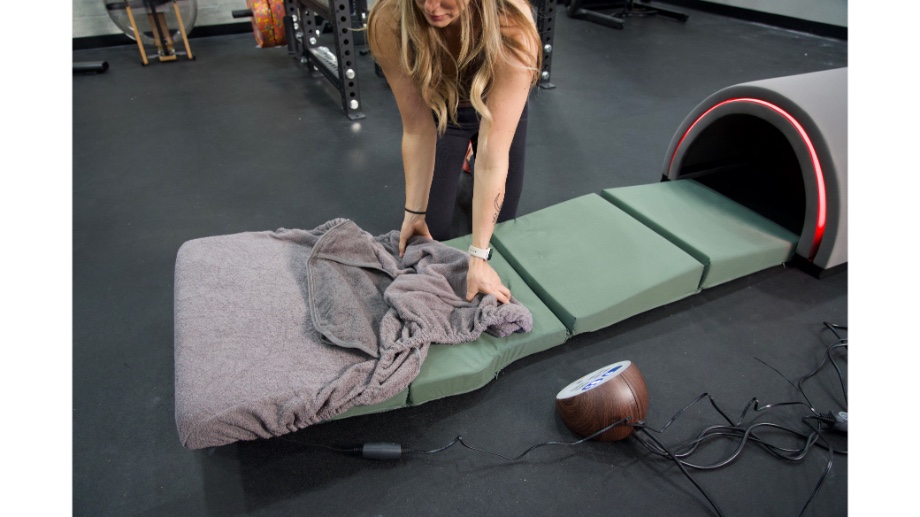Yes, you read this right, the barbell high row. Not the barbell bent-over row, T-bar row, Yates row, or the barbell high pull, but the barbell high row. The barbell high row is a hybrid movement between those three excellent strength training exercises, and it is likely a row variation you have never seen or performed before.
The devil is in the details here, as it is performed similarly to a bent-over row but with a few slight modifications. Your torso is more upright but still in a modified hinge position, and you take your elbows out wide like the high pull to focus on the upper back, rear delts, and less on the lats. Here, we’ll get into the specifics of this neglected row variation for your muscle-building pleasure.
Ready to row to grow? Then let’s go.
How To Do a Barbell High Row
Here is how to do the barbell high row step-by-step, and you have two options on your initial setup. You can perform a deadlift from the floor or set the barbell thigh-high in the squat rack and walk out. Either way works.
- Grip the barbell with a shoulder-width overhand grip in front of your quads.
- Perform a hinge until the barbell is just above (not below) your knees.
- Your torso should be at a 45-degree angle, and ensure a neutral spine by getting your shoulders down and chest up.
- Row the barbell towards the sternum while taking your elbows up, back, and out.
- When the bar touches your ribcage, slowly lower down to the starting position and reset and repeat
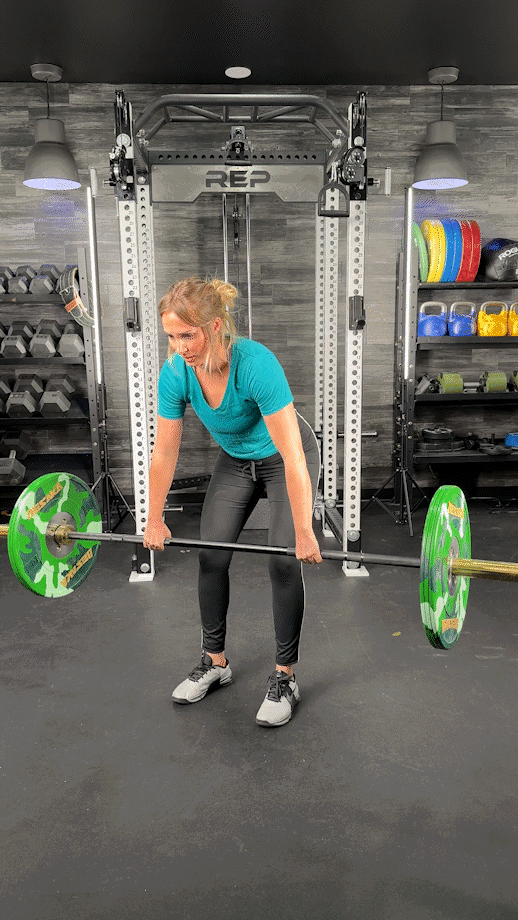
Trainer Tips for Form
With the barbell high row, set up and position is everything because this is performed like most bent-over row alternatives. Let’s get into the proper form details on the barbell high row so you can add it to your workout routine.
Grip Position
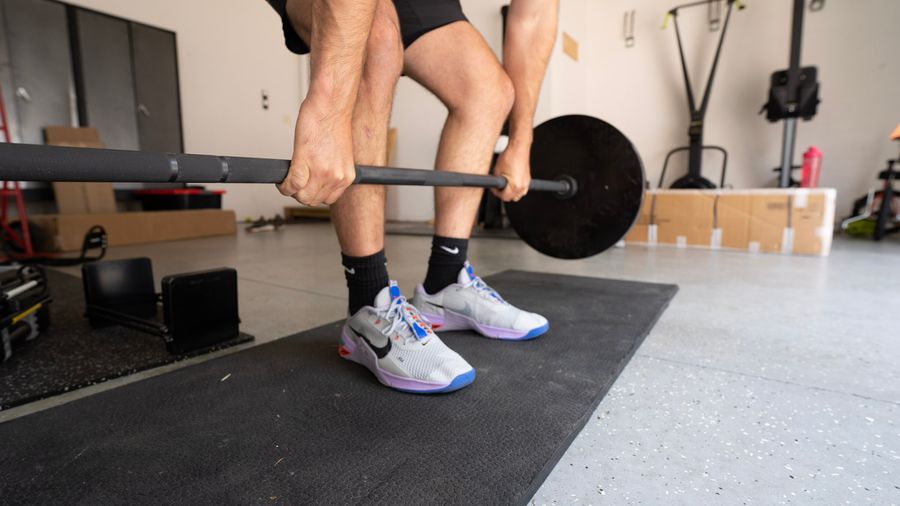
This exercise works best with an overhand grip. You can do it with an underhand grip, targeting the activation of different muscles, like the lower traps. A slightly wider than shoulder-width grip (not a narrow grip) using a false or thumb grip works best.
Torso Position
The torso position is the main difference between this exercise and the barbell bent over row. Here, you will hinge until the barbell is above your knees, ensuring a more upright torso that this exercise needs.
Keep Your Spine Straight
Shoulders down and chest up are excellent universal cues to keep your spine neutral when in the hinge position and target the back muscles, which is no different with the high row.
Elbows Out
When performing any bent-over row variation, your elbows are closer to your torso to focus on the lats. But with the high row, you row with elbows up and out from the upper body to train the upper back and traps more.
RELATED: The 13 Lat Workout Exercises
Common Barbell High Row Mistakes
To get the best out of this exercise, ensure you are not making these common mistakes.
Don’t Round Your Spine
Keeping your spine neutral in the hinge position puts tension on the glutes, hamstring, and lower back erectors. This makes the barbell high row a full-body exercise. But rounding the lower or upper back takes the tension off the hamstrings and hips and puts you at a higher risk of injury.
Tucking Your Elbows In
With most horizontal pulling movements, it’s natural to have the elbows tucked in at a 45-degree angle from the upper body. But with the high row, you need to flare the elbows out from the torso to train the upper back and traps more.
RELATED: A Kettlebell Trap Workout for Jacked Shoulders
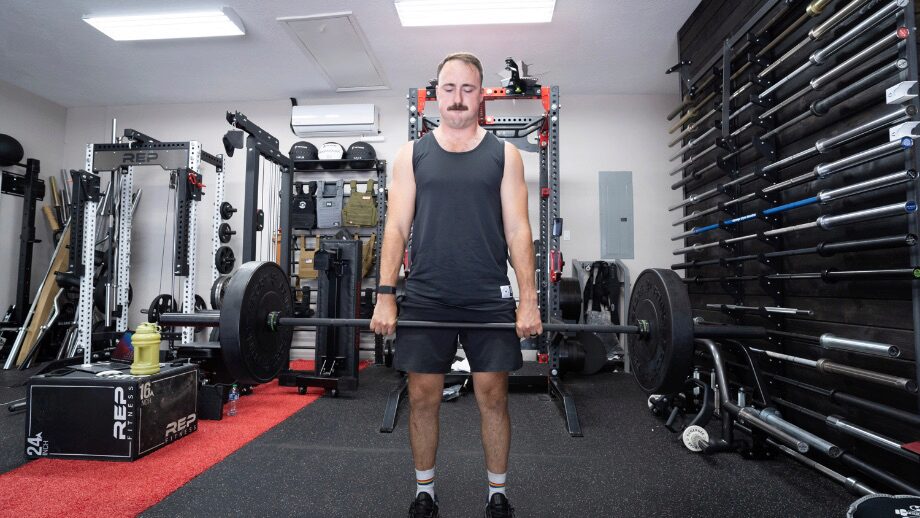
Don’t Row Too High
Rowing to the sternum with your elbows wide is ideal for performing the high row. But some lifters need clarification on this and the upright row and pull the barbell towards the shoulders. Rowing too high with too big of a range of motion jams the shoulders and takes the emphasis off the upper back.
Upright Upper Body
Losing the hinge and torso position is natural while performing any bent-over row variation. Doing so here, you’ll get a more upright torso position and turn the exercise into an upright row. Ensure to reset your torso position after each rep to prevent this.
Barbell High Row Variations
The barbell high row is a fantastic bodybuilding exercise to develop a stronger back because it is the variation where you’ll use the most weight. But if your joints are angry, you don’t have access to a barbell, or you are looking for variety, take these variations out for a spin.
Dumbbell High Row
The dumbbell row variation targets the same muscle groups as the barbell variation and here, you’ll have the option of doing it bilateral or single-arm. Using a good dumbbell provides you more freedom of movement compared to the barbell, making it easier on your upper body joints while strengthening imbalances between sides.
RELATED: The Best Adjustable Dumbbells
TRX High Row
Here you’ll target the same upper body muscle groups, but you’re in an upright position, not a hinge. The TRX high row is excellent if your lower back is an issue, you don’t have access to a good barbell, or your joints are aggravated by lifting a barbell. Plus, because this exercise is bodyweight, you’ll be able to do more repetitions for more volume, and it is excellent paired with a bench press because the upper back plays a vital role with it.
Useful Barbell High Row Equipment Accessories
With many row variations, your grip may fail before reaching your rep goal, or you haven’t fully exhausted the targeted muscle groups. If you have felt your grip give way during lat pulldowns or pull-ups, you know what I’m talking about.
A way around this is to use lifting straps or lifting hooks so grip strength will not be a limiting factor. Whether you use these or not is a matter of personal preference, neither right nor wrong.
FAQs: Barbell High Row
What muscles does a barbell high row work?
The barbell high row differs from the bent-over row because of the torso position and rowing with wide elbows. This exercise focuses on the upper and middle trapezius and rhomboids and less on the latissimus dorsi. Plus, like with most row variations, it trains the forearms, biceps, and posterior deltoids.
Is a high row good for the upper back?
The long and short answers are the same. The high row is one of the best back exercises to add size and strength to the upper back. The elbow and torso position drives more scapula adduction and less shoulder extension to build muscle and strength between your shoulder blades.
What type of barbell row is best?
All barbell rows are great because the barbell allows you to use more weight than other rowing variations for more size and strength, But what type is best depends on your goals. The barbell high row is best to get a thicker back. But the barbell bent-over row works best if you want a wider back or strength or to improve your deadlift and lower back strength.
Which barbell row is best for lats?
To focus on the lats and less on the upper back with the barbell row, you need more shoulder extension and a little less scapula adduction. Performing the barbell bent-over row with an underhanded grip is the barbell row you want to do if the lats are your focus. The Pendlay row comes in a close second, but both are great exercises for your back workout.


